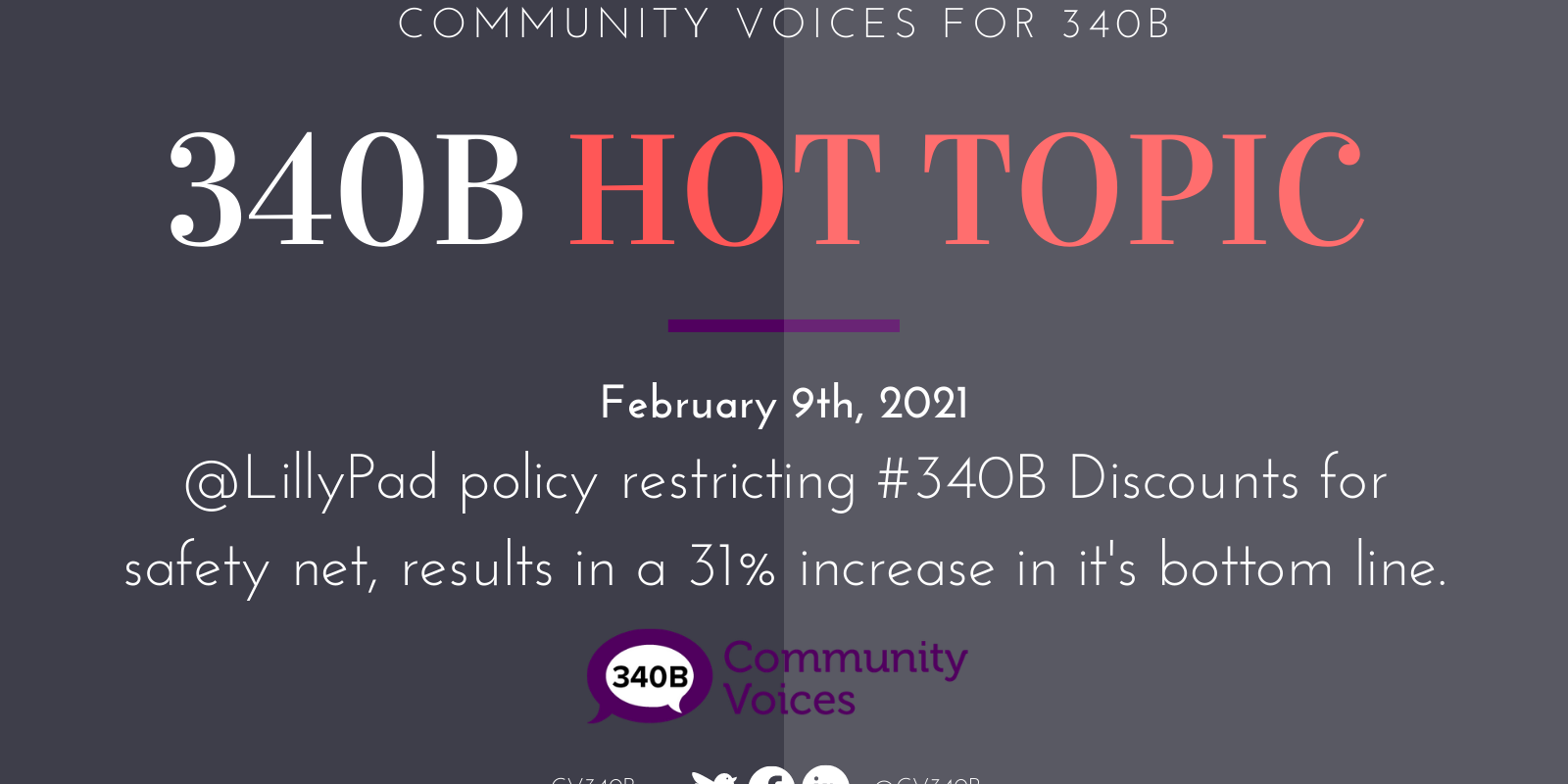While many families are directly impacted by COVID-19 and while frontline 340B safety-net providers – certain hospitals and clinics that serve low-income patients and communities – are fighting COVID-19 – Eli Lilly is reporting record profits tied directly to their actions to limit savings for diabetes medications to 340B safety net providers.
Eli Lilly 2020 fourth quarter report includes a substantial increase in revenue due in large part to its refusal to honor 340B discounts for safety-net providers. On January 29, 2021, the pharmaceutical manufacturer issued a press release titled “Lilly Reports Strong Fourth-Quarter and Full-Year 2020 Financial Results.” The report announced that Lilly’s “U.S. [revenue] increased 31 percent, to $4.598 billion” during the last quarter of last year attributing some of the revenue increase to “lower utilization in the 340B segment” for two diabetes medications, Trulicity and Humalog. According to the American Diabetic Association, “ people with diabetes are more likely to have more severe symptoms and complications when infected with any virus.”
340B safety-net providers rely on savings generated through their contracted pharmacies to pay for services for their community’s vulnerable populations. In July 2020, Lilly announced a limited distribution plan effectively excluding certain pharmacies that are contracted by 340B safety-net providers. In September 2020, Lilly announced a more restrictive policy, stating that the manufacturer would only give 340B discounts on medications that are shipped directly to the safety net provider. Lilly fourth quarter’s report states that their increased revenue is a direct result of these actions during the worst period of the COVID-19 Pandemic – October, November, and December of 2020. In December 2020, U.S. COVID-related death tolls reached the unprecedented monthly total of 89,287.







